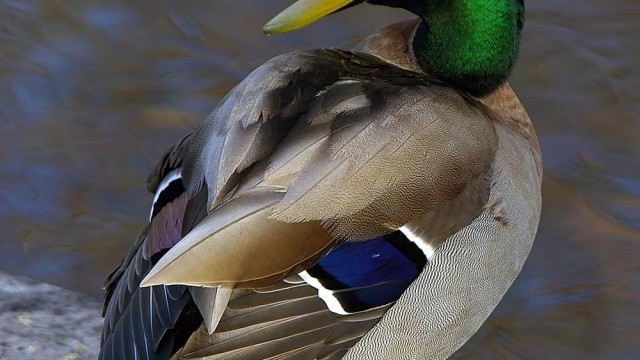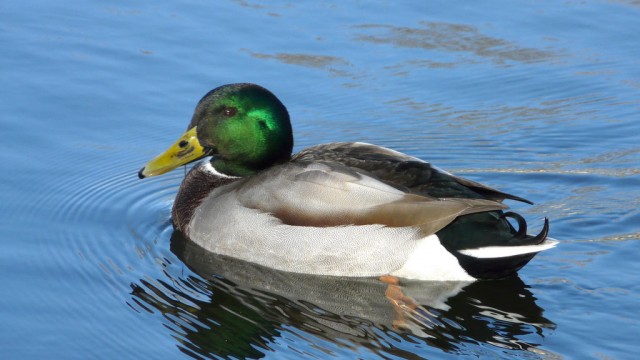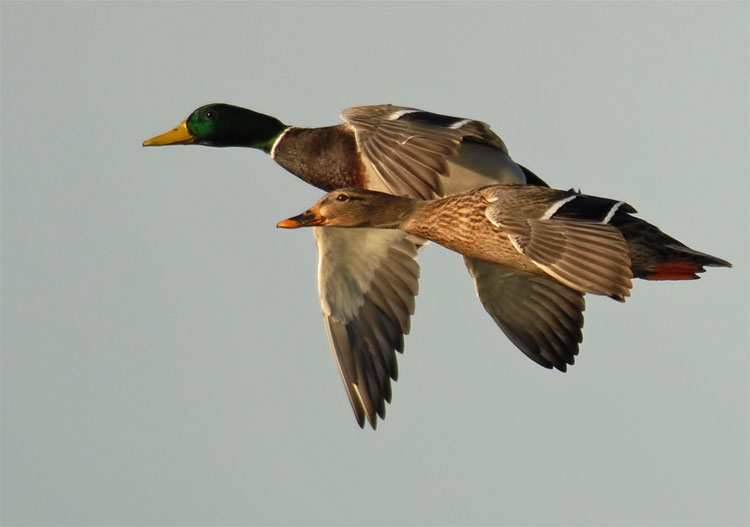“Now, what says the world to your proceedings? Do not seek to stuff my head with more ill news, for it is full.” Shakespeare, King John
The faster the pace of life in society, and the more information that’s hurled at us, the more important it becomes that we take the time to do nothing, to simply allow space between thoughts and emotions.
 Of course, most people intentionally remain as busy as they can, fearing that if they stop things will overwhelm them. But they’re simply running away from themselves, and putting off facing things as they are.
Of course, most people intentionally remain as busy as they can, fearing that if they stop things will overwhelm them. But they’re simply running away from themselves, and putting off facing things as they are.
The meditation at streamside began as leisurely as a pair of mallards drifting downstream on the lazy current. They carefully negotiated some rocks as if the water was flowing with three times the speed and volume. The sun glistened off their wet beaks, and the male’s colors shimmered in the morning light.
The next time I was able to get into the parkland was after a few days of heavy rain. The creek no longer held a thin, summer flow, but had been transformed into a wild, wavelet-filled river of winter.
It had stopped raining, but the afternoon skies were so deeply clouded over, and the grayness was so intense, that it felt like dusk. The light had a strange, ethereal quality, reminding me of a partial eclipse of the sun.
But the somberness of the day was more than offset by the eruption of green everywhere you looked. Suddenly the drought seemed just a memory; lush grass and sprouting bushes and trees had replaced the barren brownness of just days ago. The land was rejoicing, and you couldn’t help but share in its delight.
As I approached a picnic site (the ground was too damp to sit on, even with plastic and pads), a mallard couple casually entered the fast-moving current and drifted quickly downstream. Was it the same pair I’d seen a few days ago? Probably, since it was the same area.
About a half hour later, the ducks returned about 50 meters downstream, and tacked sideways against the current to the same side. Slowly, over another half hour, they made their way back to the sandy spot where they’d been when I arrived.
As they inched their way upstream, they pivoted down into the water in that funny way ducks do, poking their beaks into the bottom with their webbed feet in the air to eat some indiscernible morsels buried along the shallows.
The female rather boldly led the way back upstream to where they’d been, while the male watched cautiously close by, eyeing me for any sign of danger. She had a brown, variegated plumage, while he was regal in bright colors—florescent green neck, and off-white, brown and blue accented feathers on his back.
Passive awareness eradicated the separate observer, and allowed attention to gather into meditation. Watching thoughts and emotions as they arose in the same way as watching the mallard pair now in front if me only a few meters away (that is, without separation or interference,) the mind effortlessly and naturally fell silent.
The mallards became so comfortable in my presence that the female came out of the water to stand on the sandy edge a short distance away. Just then a dog, which had apparently stealthily made its way up behind me, bolted after the ducks, lunging at and coming fairly close to catching the female.
The mallards squawked in fear and disapproval and flew a short distance downstream, tucking into the opposite bank about 100 meters away. I looked with consternation at the owner, a young man of college age, and he nonchalantly said, “sorry about that.”
said, “sorry about that.”
Absurdly, I wanted to say, ‘apologize to the ducks,’ or sternly, ‘leash your dog’ (as required in the park). But almost involuntarily, yet without reaction, I just held up my arm in dismay.
I could feel the jauntiness drain out of him. I was violating the American cultural mandate that one must always return superficial apologies with superficial forgiveness. But I didn’t feel like saying ‘it’s ok,’ because it wasn’t.
I instantly saw that what happened was no accident, no coincidence. But I didn’t feel anger toward the fellow, since he wasn’t intentionally doing harm, but was just a conduit for collective darkness. It was a small incident, of no significance really, but it rippled with psychological and metaphysical implication.
Jolted back to the world as suddenly as the dog had bolted toward the ducks, the world was too much with me as I walked the wet paths. Does genuine meditation make one unfit to live in this monstrous society, too sensitive to handle the effluvium as most people do?
The world isn’t separate from us. It isn’t what is happening in Ukraine or Syria or somewhere else, but what is within and around us every moment, with rare breathing spaces like I had been enjoying.
Indeed, the world is the collective expression and manifestation of what we are within ourselves. Realizing that, our responsibility for ourselves and our loved ones is identical to our responsibility for the planet and humanity.
There is no division between inside and outside in actuality. The chaotic movement of thought within us mirrors the world outside. That’s why even a moment of complete space and stillness—the spontaneous cessation of thought/emotion in attention—is so regenerative.
Martin LeFevre

